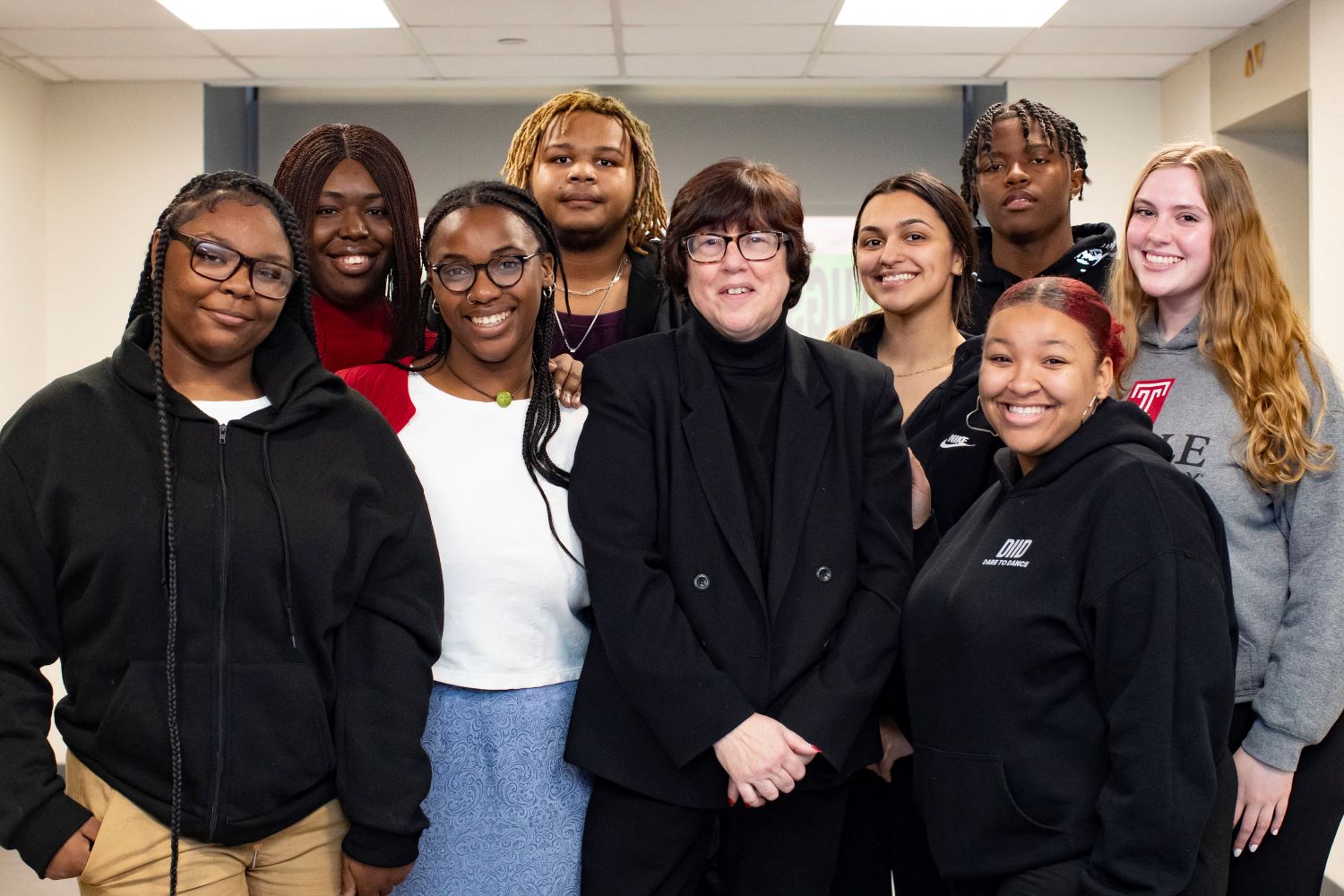Temple University is spearheading an innovative project to reduce violence among young people in North Philadelphia.
The university’s Resolutionary Partners project has received a $1.7 million grant from the U.S. Department of Justice through its STOP School Violence initiative. The Resolutionary Partners project is a collaboration between the Temple University Center for Conflict Management and Media Impact, Citizens Police Oversight Commission, the School District of Philadelphia, Achieve Academy East, Excel North Academy and Excel South Academy, and SEPTA Transit Police. Temple is one of 10 recipients of the competitive grant from the Department of Justice.
The grant funding is being used to provide comprehensive violence prevention training in schools serving at-risk and system-involved youth between the ages of 13 and 21. The program focuses its efforts on schools located in high-violence, high-poverty and high-trauma communities in Philadelphia and comes as the city is experiencing an uptick of gun violence. This gun violence is particularly impacting young people. The School District of Philadelphia says 100 of its students have been shot this school year and 20 of them were killed.
Resolutionary Partners is a three-year program that will train a vast network of students, law enforcement and school staff in an integrated conflict management and violence prevention initiative. The network will include 200 students from the Achieve Academy East, Excel North Academy and Excel South Academy schools as well as some middle and high schools from the School District of Philadelphia, 120 law enforcement officers, and 60–80 teachers and administrators. Seventeen Temple students are also interns for the program.
“There are many great violence reduction efforts in the city, but we know that the Resolutionary Partners project adds to existing efforts in a couple of ways—one way it does this is through the development of an integrated conflict management system,” said Tricia S. Jones, the project’s leader and director of the Center for Conflict Management and Media Impact.
An integrated conflict management system entails different approaches to handling conflict in the schools and the community, including basic conflict skills lessons, facilitating dialogue, conflict coaching and mediation.
“The second way this program enhances existing violence reduction is its emphasis on collaboration to build more trusting relationships between youth and law enforcement in the schools and in the city,” Jones continued.
She points to an initiative organized by her SEPTA colleagues within the Resolutionary Partners project as an example of how these relationships are being built. As conflicts and violent incidents are a common occurrence among students heading to or coming from school on public transportation, Resolutionary Partners plans to train 120 SEPTA Transit Police officers to work with youth to help manage conflicts.
“This provides students with a series of valuable and informal learning situations in which they can build relationships with officers and learn more about how community policing builds awareness and trust to help us all prevent violence,” Jones continued.
The program’s three current participating schools are alternative institutions that serve students 18–21 that are homeless, in foster care, impacted by domestic violence or involved in the juvenile justice system. Once they have solidified their approach with these schools, Temple plans to expand the initiative to four mainstream Philadelphia public schools.
“For system-involved youth, that 18–21 age group is critical because a lot of city and state support ends for these kids when they turn 18 and then they are literally on their own,” Jones stated.
To that end, these youth face challenges in making the transition to independence and may need assistance in obtaining housing and employment while pursuing their high school diplomas.
Jones says it's important that these young people be empowered to take a leadership role in addressing violence.
“I think that the youth that we are working with have visions about what they think really needs to happen, but they haven’t had enough attention and voice,” she stated. “I’m most excited about the fact that, through our program, these students will be empowered to become leaders who will reach more community members and continue this work of reducing violence in Philadelphia. They are our best hope of a better and safer future for our city.”
Apr. 20, 2023

Tricia Jones (center) interacts with interns and students from Resolutionary Partners, the program she created to decrease violence in Philadelphia. From left to right: Nae Brown, Tosin Sanni, Nya Jarboe, Dante Harrell, Tricia Jones, Katie Weissenberg, Javon Clements, Ciara Chase and Carissa George.
Photo by Ryan S. Brandenberg
